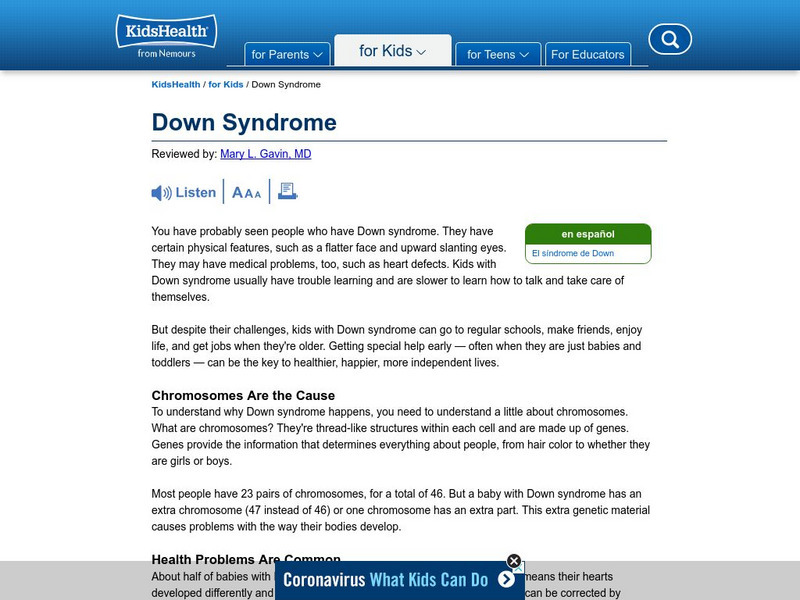Curated Video
Doctors market accurate DNA test for Down's Syndrome
AP Television
Port Jervis, New York - 9 June 2011
1) Medium Erin Witkowski, 27, with son Grady, 15 months.
2) SOUNDBITE (English) Erin Witkowski, Son has Down's Syndrome:
"He's joy, he smiles and he laughs, he's everything I ever...
Curated Video
New research found testing bits of fetal DNA in a pregnant woman's blood is more accurate than current methods of screening for Down Syndrome and other common disorders. The DNA tests may reduce false positives and unneeded invasive tests. (Feb. 26)
A DNA test of a pregnant woman's blood is more accurate than current methods of screening for Down syndrome and other common disorders, new research finds.
If other studies bear this out, it could transform prenatal care by giving a more...
Teacher's Pet
Formation of Gametes
The smallest cell in a human body is sperm while the largest cell in a human body is an egg. The video discusses the formation of gametes from a scientific perspective. It includes the process of spermatogenesis, oogenesis and concludes...
Other
Osmosis: Down Syndrome
What is Down syndrome? This video covers the three main mechanisms leading to Down Syndrome, as well as the more common complications and physical characteristics. [10:49]
Curated OER
Kids Health: Down Syndrome
Article that helps children to understand what Down Syndrome is, why it happens, what the problems are, and what life is like for children with Down Syndrome.
Sophia Learning
Sophia: Changes in Chromosome Number: Lesson 2
This lesson will explore what types of events can change the number of chromosomes an individual has and the physical outcomes of having an abnormal number of chromosomes. It is 2 of 5 in the series titled "Changes in Chromosome Number."
Sophia Learning
Sophia: Changes in Chromosome Number: Lesson 3
This lesson will explore what types of events can change the number of chromosomes an individual has and the physical outcomes of having an abnormal number of chromosomes. It is 3 of 5 in the series titled "Changes in Chromosome Number."





